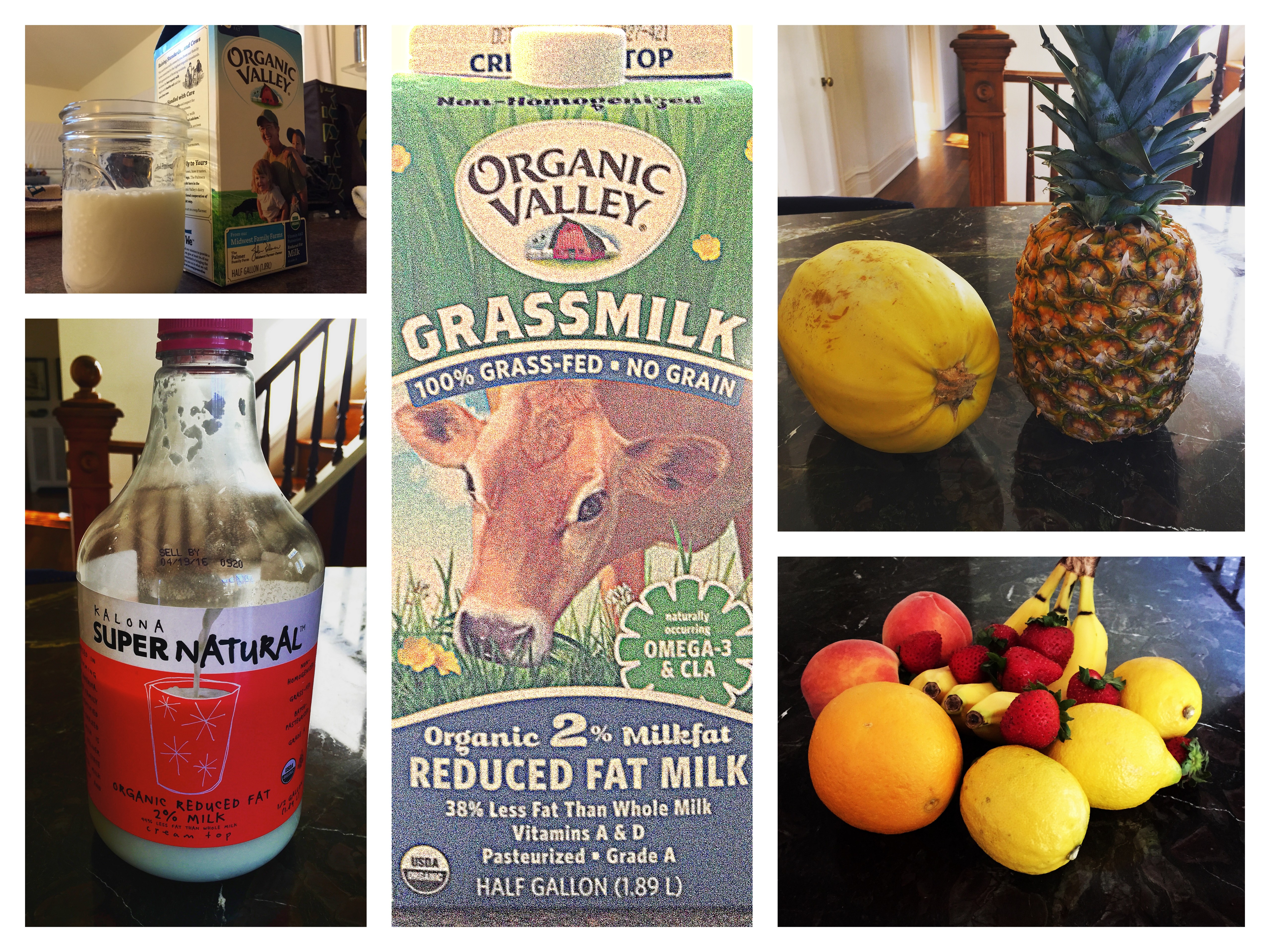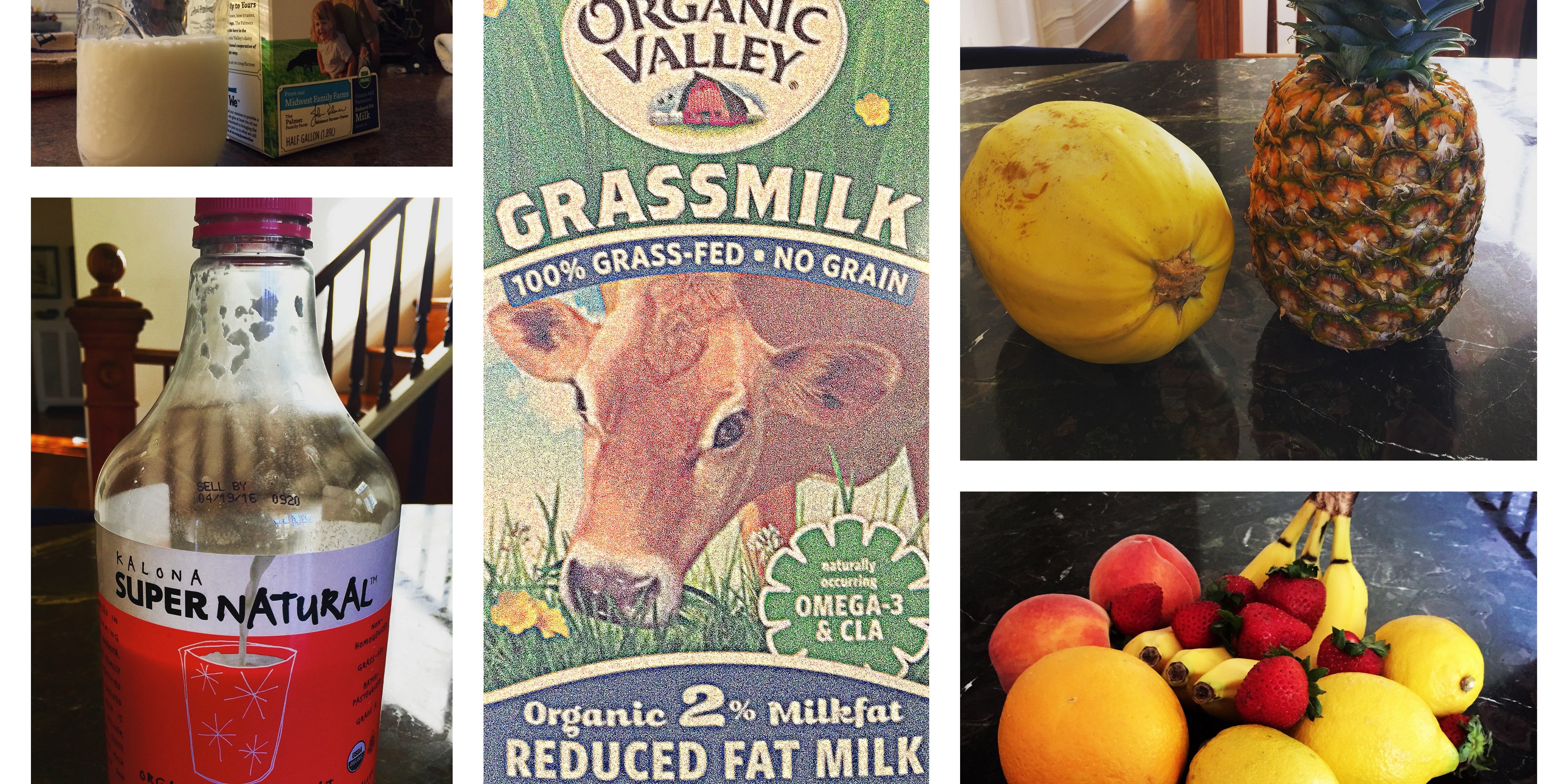 A healthy balance of intestinal bacteria (a.k.a. gut bacteria or gut flora) is extremely important when it comes to your health. If you read my previous posts on intestinal bacteria and how they affect your health, you know that it’s not so simple as feeding or increasing the so-called “good” bacteria in your gut. Remember: There’s no such thing as “good” bacteria, and the healthiest people have low levels of all bacteria. Follow these five dietary tips to improve gut bacteria, specifically designed to help you promote a healthy balance naturally—without pills or supplements.
A healthy balance of intestinal bacteria (a.k.a. gut bacteria or gut flora) is extremely important when it comes to your health. If you read my previous posts on intestinal bacteria and how they affect your health, you know that it’s not so simple as feeding or increasing the so-called “good” bacteria in your gut. Remember: There’s no such thing as “good” bacteria, and the healthiest people have low levels of all bacteria. Follow these five dietary tips to improve gut bacteria, specifically designed to help you promote a healthy balance naturally—without pills or supplements.
1. Skip the probiotics and prebiotics.
Despite popular belief, over-the-counter prebiotic and probiotic supplements have not been shown to improve human health or resistance to disease. The healthiest humans have low levels of bacteria, as well as a greater variety of bacteria—each type having its own niche and creating a healthier balance in the gut. So, why would you want to repeatedly feed or increase a certain type of bacteria via daily supplements? Especially when those supplements have not been proven to work.
The answer to promoting a healthy balance of intestinal bacteria lies in your diet.
2. Eat a diet high in fruits, well-cooked veggies, and dairy.
To reap the desired benefits of prebiotics and probiotics, instead eat a diet that is high in fruits, well-cooked roots and vegetables, and healthy dairy products. Why? Because easily digested, low-fiber sources of carbohydrates (e.g. orange juice) have been shown to reduce toxic exposure from the intestinal bacteria.1 Fruits and well-cooked veggies are good because they are easily digested in the upper portion of the intestine. And dairy products are good because they allow your body to access the beneficial byproducts of fermentation.
3. Don’t skip the dairy (it’s more beneficial than fiber).
Dairy was already mentioned in tip #2, but it’s worth elaborating on. As noted, dairy consumption helps your body access the beneficial byproducts of fermentation in the intestine.2 These byproducts boost metabolism and protect against tumor growth, among other things. Contrary to popular belief, humans with high-fiber diets don’t end up with the important byproducts of fermentation in the blood—or at least, not at the same level as those who consume butter and dairy fat.2 Cows, goats, and sheep have anatomy specifically geared toward housing the intestinal fermentation. Therefore, they produce milk that is rich in these beneficial chemicals.
People who consume healthy dairy products have the highest increase in levels of the beneficial byproducts of fermentation in the gut.
If your intestinal health is compromised, you may have a hard time digesting lactose. Consuming dairy in the form of cottage cheese, ricotta, greek yogurt, and hard cheeses is a great way to reduce lactose. Butter and cream are great sources of the fermentation byproducts that don’t contain any lactose. Even if you are completely lactose intolerant, parmesan reggiano is still a great option. Milk and cheese from goats and sheep (rather than cows) are also fantastic nutritional options that tend to be more tolerable.
4. Eat raw carrots.
Generally I recommend eating root vegetables that are well cooked. However, carrots are an example of a raw food (straight from the earth) containing chemicals that oppose the “bad” bacteria, yeasts, and other microorganisms in the intestine.3 Raw carrots have fiber that cannot be digested by the bacteria, due to the presence of antimicrobial substances within the carrot. Furthermore, the fiber has a tendency to absorb toxins excreted by the bacteria.
5. Eat other foods that improve gut bacteria.
Mushrooms are another great antimicrobial food to add to your diet, as well as coconut oil, olive oil, and garlic. Well-cooked bamboo shoots have a similar effect to raw carrots. And, as previously mentioned, orange juice is known to reduce your exposure to endotoxins.
Why Use These Tips to Improve Gut Bacteria?
By following my five dietary tips to improve gut bacteria, you will help decrease the success of the more damaging bacteria (by providing them with less food) and lower the overall population within your intestine. Keep in mind that this process takes time, but the potential benefits are well worth the wait. In fact, it is quite possible that the most significant benefit of a high-quality diet is that your intestinal microbiome will continue to improve over years—reducing the infection and thus your global stress load, and enhancing the function of your intestine and entire body.
Interested in exploring the latest topics in health and nutrition from a scientific perspective? Sign up for my monthly newsletter.
Want to try a new workout method that’s great for spine health, strength and stability, and flexibility? Join us for ELDOA group classes right here in St. Louis!
References
- Deopurkar R, Ghanim H, Friedman J, et al. Differential effects of cream, glucose, and orange juice on inflammation, endotoxin, and the expression of Toll-like receptor-4 and suppressor of cytokine signaling-3. Diabetes Care 33, No. 5 (May 2010): 991-997. http://www.ncbi.nlm.nih.gov/pmc/articles/PMC2858203/
- Allen NE, Grace PB, Ginn A, et al. Phytanic acid: measurement of plasma concentrations by gas-liquid chromatography-mass spectrometry analysis and associations with diet and other plasma fatty acids. Br J Nutr 99, No. 3 (Mar 2008): 653-659. http://www.ncbi.nlm.nih.gov/pubmed/17868488
- Babic I, Nguyen-the C, Amiot MJ, Aubert S. Antimicrobial activity of shredded carrot extracts on food-borne bacteria and yeast. J Appl Bacteriol 76, No. 2 (Feb 1994): 135-141. http://www.ncbi.nlm.nih.gov/pubmed/8144415








What about onions cooked or raw and leafy greens like romaine and bitters like arugula, dandelion ect.